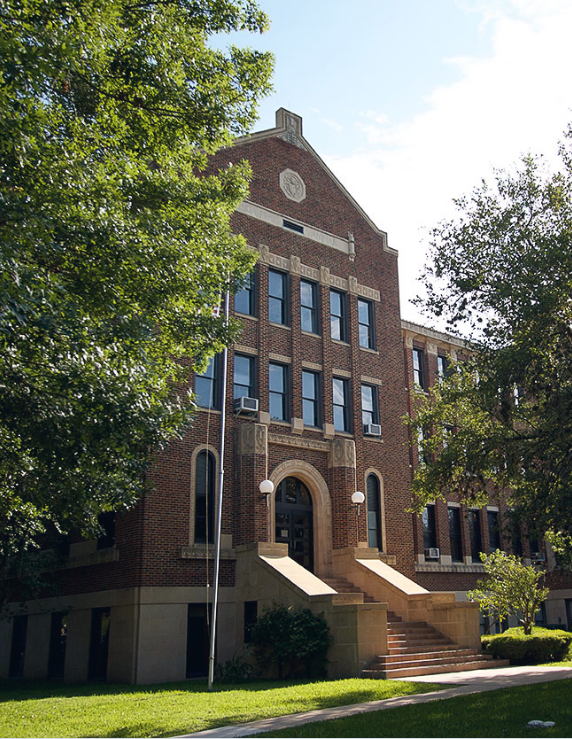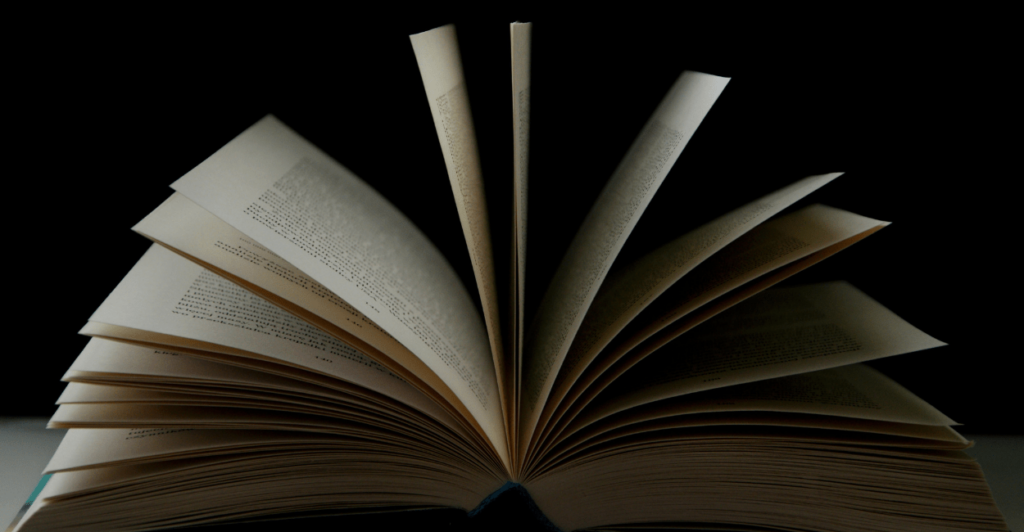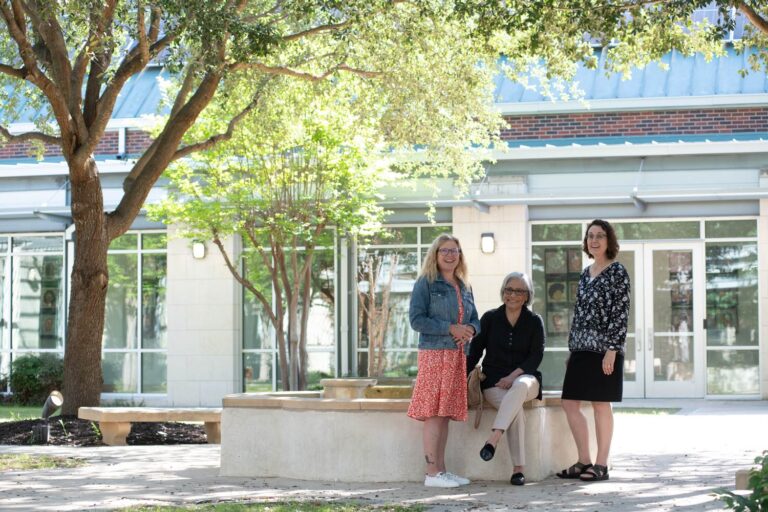“It’s essential to our biblical tradition to embrace the truth that God’s love for us is not a memory of the nostalgic past, but rather it’s here in the present, at this very moment. This is the promise found throughout the Word of God. This love is a force filled with energy that sustains us over and over again.”
A centerpiece of Henri Nouwen’s spiritual lens is the belief that the separation of ministry from spirituality—the distance often found between service and prayer—is unacceptable, a Catholic liturgical composer told some 400 people June 20 at Oblate School of Theology’s 2017 Summer Institute.
David Haas, composer of such songs as You Are Mine and Blest Are They, explained that while Nouwen’s mission was to penetrate the secular with the good news and make this life more accessible to all, he couldn’t tolerate any belief that “a life of prayer is a luxury.”
“Nouwen’s commitment to the Word of God was total and sacrosanct, as he lived, breathed and consumed Paul’s call to all of us in 1 Thessalonians to ‘pray without ceasing.’ It’s in this acclamation, an act of inhaling and exhaling the divine presence, that the communion Henri ached for could be realized and expand the spiritual life for himself and for all he served as a teacher, writer, and pastor,” Haas declared.
Haas’ theme for the lecture was call for all Christians to be “living reminders,” sustained and guided by Christ, and how that is tethered to the life of prayer. “To be living reminders, centered and saturated with prayer, is the call to all who recognize their own magnificence in God’s eyes, which Henri recognized as being the Beloved, to be witnesses to the world and to be the people we were meant to be—people who praise God and offer ourselves in joy and in lament, who cannot help ourselves to be anything but totally engaged in the mission to energize and make holy our sisters and brothers, to act justly, to love tenderly and to walk humbly with our God,” the composer declared.
When we pray authentically, in song and in the entirety of our lives, Haas emphasized, “we are to remember—or, as Henri liked to say, to re-member—according to who God says we are. To pray authentically is to find freedom in the glorious work of art that we all are. Even in the midst of brokenness and suffering—in fact, especially in the midst of our brokenness and suffering—we can enter the holy conversation with the one who calls us each by name.”
Remembering Henri Nouwen’s commitment to the Word of God, the composer explained, “We can move to a healthier and more whole understanding of what the Scriptures really are. When the lector proclaims the reading at Mass and concludes with ‘The Word of the Lord,’ let us remember not only what’s being said but what’s not being said. We are proclaiming the Word of the Lord, not the words of the Lord. The Hebrew Scriptures and the Christian Testament are the human responses to that wonderful connection between the big God story with our stories—the equally divine stories of what seem to be most completely and beautifully human.”
Haas asserted that the authors of Scripture were inspired, but they were inspired to proclaim, write down and share their experiences, their stories, of the Holy One—not only of the God they came to know, but of the God they hoped would fulfill their dreams and desires and also would respond to their cries. So it is with the wisdom of Henri.” In the record of Nouwen’s words, his books, articles, letters and other writings, the composer said, we have a contemporary scripture that is a response to a human ache for millions of people both during his time in our midst and for the 20-plus years since Nouwen’s death.
“Henri’s words, his insights, his holy wisdom, is the Word of God and lives in our midst. It must be proclaimed, praised, sung and danced,” he commented. “That’s because, like every prophet—Jeremiah, Isaiah, Micah, Hosea, psalmist David and the New Testament teachers Paul, James and Peter—we hear, in Henri’s voice, the vulnerable cries of every human heart. What is a prophet? In the biblical understanding,” Haas said, “the prophet isn’t a fortune teller, but is understood to be a spokesperson for God. Is that not the case for Henri? What about the psalmist? He’s the person who finds the words that demand to be sung, the many galaxies of the human spirit that we wrestle with—joy, praise, peace, passion, faith, hope—and yes, grief, sadness, hopelessness and rage. The teacher is the one who admonishes and puts light on the good deeds and actions of the living church, as we see especially in Paul. We can certainly—and we do—pray along with him in solitude, reading and drinking in his words.”
But Haas noted that Henri Nouwen also can be a source of conscience for the renewal of our call to be living reminders of Jesus, especially in view of the shrinking number of priests, which compromises our access to the celebration of the Eucharist and the passage of other rituals such as the Liturgy of the Hours and other sacramental rituals and devotions’
One of the first attributes of God, the composer observed, is that God is mercy. “To become healing reminders, Henri teaches us that the way of forgiveness is at the heart of God’s way. Pope Francis obviously agrees,” he noted, adding that “Francis’ call to mercy, while it’s way too early to accept this, could end up being the great blessing of his papacy when historians write about him in years to come. For Francis, mercy is not merely the theme for the Jubilee Year that we recently concluded. I received a phone call a few months ago from a woman who said, ‘We did the Year of Mercy thing; what’s next?’ The comment left the audience laughing.
Then Haas answered the question: “This is the next; over and over. To be a living memory of Jesus Christ, Henri would say, is to reveal and disclose the connections between our everyday sufferings—some very small and some very big—and the great story of God’s suffering in Jesus Christ—between the little lives we live and the great life of God, who is with us.”
If we pray authentically, Haas asserted, the connection can be made, using the adjectives that come in the enterprise of prayer, such as the arts—proclaiming, story-telling, music, dance, the visual arts. The arts move us to the language of the heart, which is why the ministry of music is so important. Music expresses the aching of the human heart.
Music can say things that words by themselves cannot, he pointed out, adding, “Imagine your favorite Broadway musical with no music. The music helps to tell the story.” He spoke the words to the hit song Maria from the 1957 musical West Side Story to show how words by themselves fail to achieve the mood of a young man’s delight at the beauty of an attractive girl’s name the way a song does.
“Music and all the arts help us become human reminders,” Haas said. “They help us reveal, as Henri would say, that the truth is that our pains are part of a greater pain. Our sorrows are part of a greater sorrow, and our experience is part of a great experience of Him who said in Luke’s gospel, ‘Was it not ordained that Christ should suffer and enter into the glory of God?’”
Next, the composer spoke of “the God of second chances,” recalling his heart surgery 10 years ago, after which he had to be re-admitted to the hospital and suffered a cardiac arrest. “I’ve learned a lot about the God who relentlessly refuses to give up on us.” He played on a piano a short song he had written with the title, Come Now, O God of Second Chances and then continued playing the music while the audience sang it.
However, Haas pointed out that Nouwen would be quick to remind us that the healing of memories, however important, is not the destination of the journey to be living reminders. He taught time and time again that to remember is not just to call past memories to mind but to bring the events to pray and celebrate and sing of them right here and right now.
“It’s essential to our biblical tradition to embrace the truth that God’s love for us is not a memory of the nostalgic past, but rather it’s here in the present, at this very moment. This is the promise found throughout the Word of God. This love is a force filled with energy that sustains us over and over again,” he asserted.
The story of the Prodigal Son, which had a profound place in Nouwen’s heart, is the story of the God of second chances, which we’ve experienced time and time again, Haas reminded listeners.
The father of the Prodigal Son, Haas commented, is “an image of God, who runs toward us all the time—even in our darkest, most shameful times,” as well as the God who says “All I have is yours.” He said his parents showed him what was meant by that as they affirmed his work and showed unconditional love. “God’s forgiveness and acceptance are the lesson: it’s impossible for God to be any other way. The gospels for the third, fourth and fifth Sundays of Lent show this—the Samaritan woman at the well, the man born blind and the raising of Lazarus.”
Noting that Corpus Christi, Feast of the Body and Blood of Christ, was June 18, Haas called attention to the point that while it calls attention to the Eucharist elements—bread and wine—“let us not forget that the sustaining reminder of these elements, which is you and I,” adding, “If we cannot find the presence of Christ in you and I, we’ll never find it in the bread and wine. Let’s do more than spend hours gazing at a monstrance. Let’s adore and revel in the presence of Christ broken and poured out in the living reminders of our lives—the stories you and I hold.”
While prayer and solitude are important, Haas reminded listeners that Nouwen always insisted that prayer should never be considered ultimately a private act. “It’s in the presence of each other, when we gather, whether in the Sunday Eucharist or in any of the other ways we gather, that we find true sustenance,” he said.
By J Michael Parker



